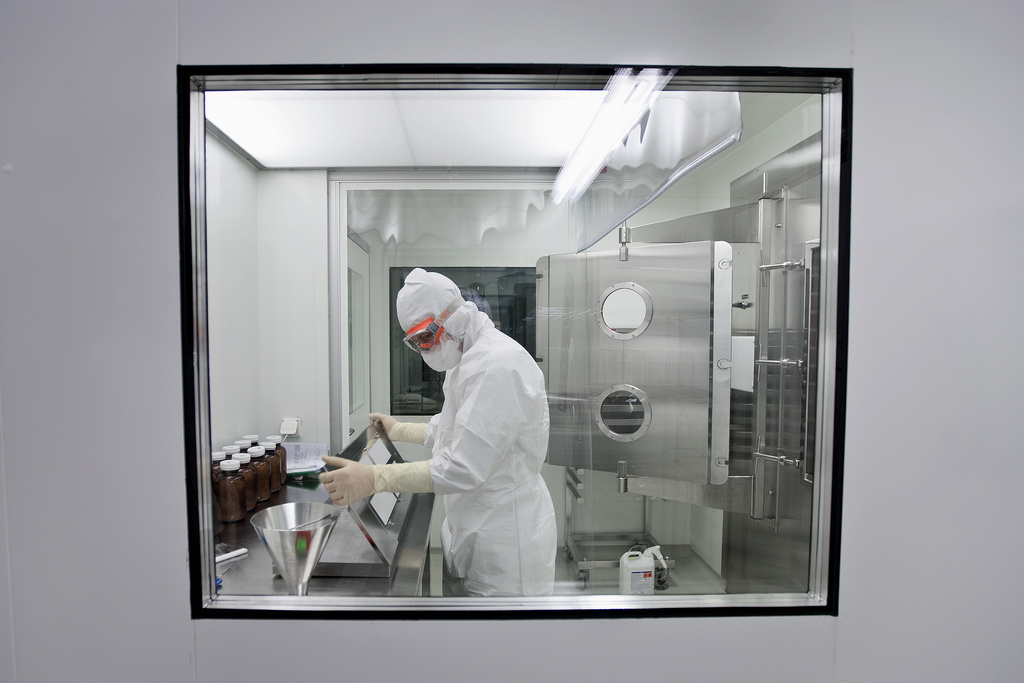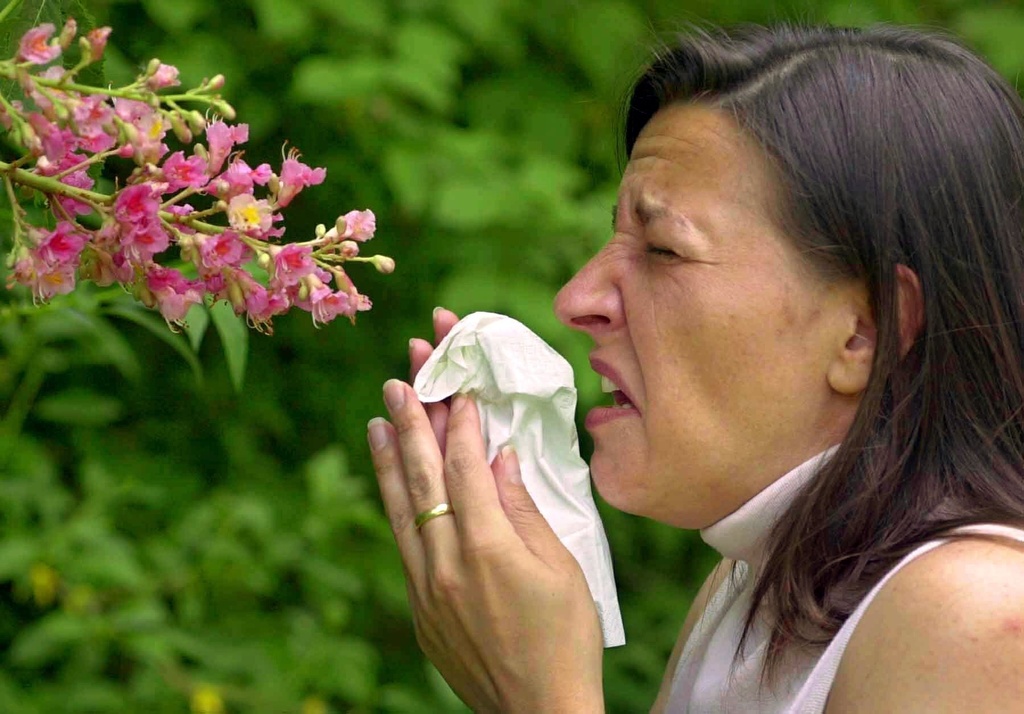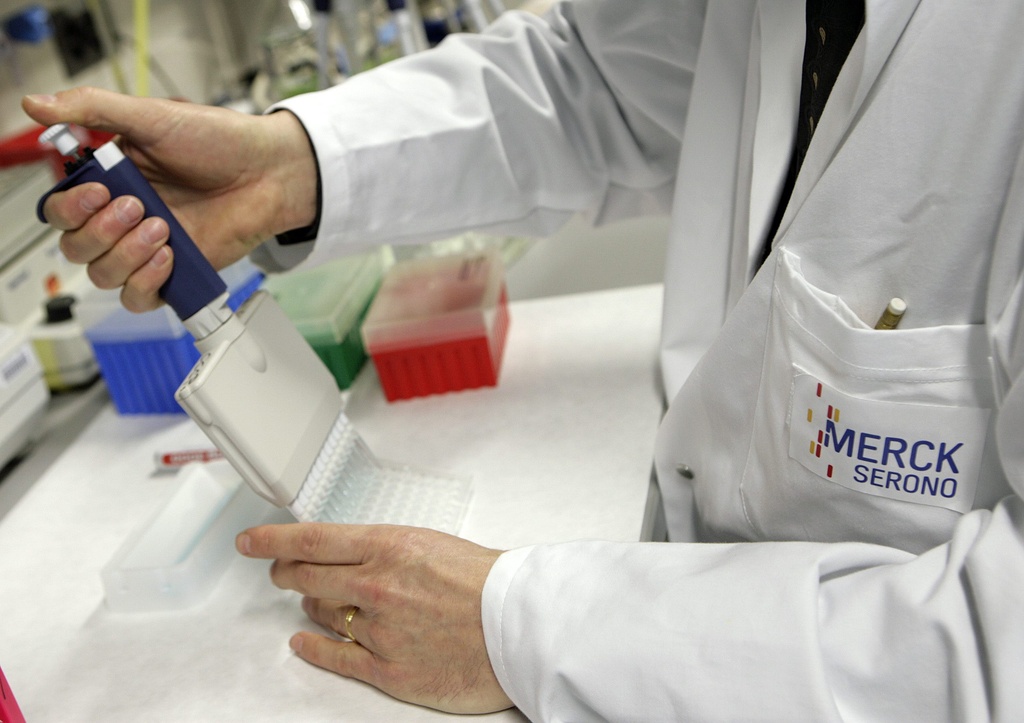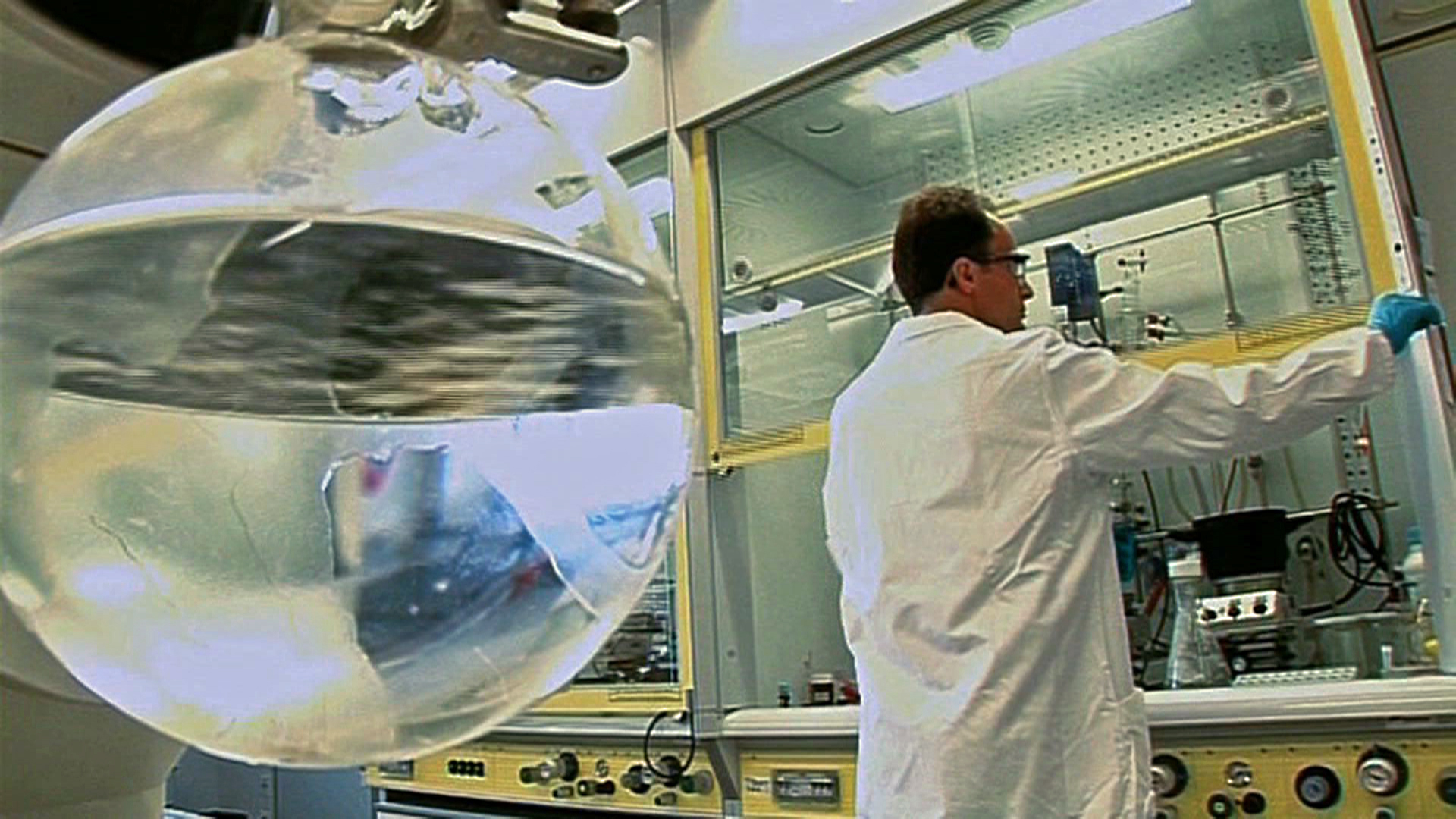Serono strikers vow to continue protest

Hundreds of employees of the Serono pharmaceutical company have held a day of protest against the closure of the Geneva-based plant. The industrial action is due to continue according to trade unions.
Activists demonstrated at the entrance to the headquarters of Serono on Wednesday to put pressure on the management of Serono’s owners, the German drug and chemical maker Merck, and the Geneva authorities.
The Unia trade union said the protests “had slowed down considerably” the company’s daily business.
Staff voted to continue the action on Thursday and to take to the streets of Geneva, according to a union statement.
The strikers want Merck to improve its offer for a social plan and for the Geneva authorities to step up their efforts to save jobs.
The protest came in response to an announcement by Merck on Tuesday confirming plans to shut the Swiss headquarters of its Serono pharmaceutical division. Around 500 jobs will be axed and 1,250 transferred to other company sites.
Merck said proposals put forward during the restructuring consultation period for maintaining the Geneva site were “not viable or practicable given the need to eliminate existing duplications of functions to ensure the long-term competitiveness of the business”.
Social plan
Stefan Oschmann, executive board member of Merck and head of the Merck Serono division, said the restructuring at the Geneva site was part of bigger picture affecting the entire Merck group. “This restructuring process involves tough measures but these are essential to safeguard the future of Merck Serono.”
Merck said some proposals by staff for the social plan had been adopted, such as lowering the minimum retirement age from 58 to 56.
The company is also reviewing several ideas put forward for start-ups for developing the biotech cluster in Geneva through a Merck Serono support fund of €30 million (SFr36 million). A task force made up of cantonal, federal and academic authorities had called for the fund to be increased but the president of the board of directors said it was “sufficient”.
The head of Geneva economics department, Pierre-François Unger, criticised the firm’s communication and passive stance over this issue.
“We have had no news from Merck Serono,” he told Le Temps newspaper. “I am expecting a significant gesture of up to SFr100 million. This is the least it could do after confirming hundreds of job cuts.”
2013 closure
The restructuring, first announced in April, will result in the largest layoff Geneva has ever seen. The plans came as a shock to the sector. It is less than six years since Darmstadt-based Merck bought Switzerland’s flagship biotech company Serono for SFr16 billion.
Of the 1,250 jobs currently located in Geneva, 750 will be transferred elsewhere, including 130 to neighbouring canton Vaud, and 500 posts will be cut. In canton Vaud, around 80 people will be made redundant and manufacturing operations in Coinsins will move to the production site in Aubonne.
Most of the staff transfers and cuts are due to be carried out by the end of 2012 and the Geneva site is due to close in mid-2013. Coinsins will shut in 2014. Overall, Merck Serono will continue to employ around 1,000 people in Switzerland.
Merck Serono said it would be consolidating all headquarter operations at its Darmstadt site and focusing research and development in Darmstadt, Boston and Beijing.
A vote to take strike action was accepted by 650 employees on Tuesday, with 51 absentions and three votes against.
“The management has disregarded hundreds of different proposals made,” staff representative Stéphane Henchoz was quoted as saying. “It’s really disrespectful towards the personnel and contrary to all the values the firm talks about.”
Unia regional secretary Alessandro Pelizzari said they were surprised the company had refused to make significant improvements to the social plan and the union intended to continue fighting for jobs to remain Geneva.
Merck bought Serono from the Bertarelli family in 2006 for SFr16 billion. Last year, it generated €5.6 billion, or 60% of Merck’s turnover, but its operational result was down 46% to €304 million.
These results were blamed on writedowns at its Corsier facilties, the re-evaluation of some projects and the decision to drop oral multiple sclerosis drug cladribine from its pipeline after the United States Food and Drug Administration refused to authorise its sale over safety fears.
Serono made its earlier fortune thanks to another MS drug, Rebif, which has been on the market for 17 years, and has relied on it along with another product, Erbitux, to generate revenue.
Serono became a household name for many in Switzerland after Ernesto Bertarelli, the company’s previous owner, won the America’s Cup in New Zealand with his Alinghi syndicate in 2003.
Merck has announced that it intends to save €300 million per year as of 2014. However, making the savings will cost it €600 million.

In compliance with the JTI standards
More: SWI swissinfo.ch certified by the Journalism Trust Initiative




You can find an overview of ongoing debates with our journalists here. Please join us!
If you want to start a conversation about a topic raised in this article or want to report factual errors, email us at english@swissinfo.ch.